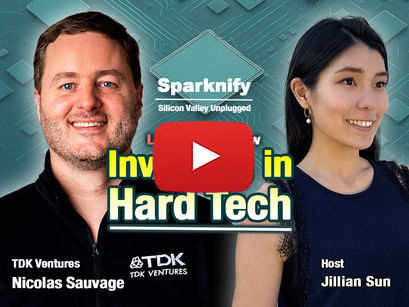How AI Is Changing Childhood—And What We Should Teach Instead
- Sparknify

- Jun 14, 2025
- 3 min read
Artificial intelligence (AI) is rapidly reshaping childhood experiences, transforming traditional education and play into entirely new paradigms. While AI promises efficiency and convenience, leading child psychologists and educators emphasize the necessity of reevaluating what children learn to ensure their success in an AI-driven future.
The Impact of AI on Childhood Learning
Recent advancements in AI—such as ChatGPT, adaptive learning platforms, and AI-driven educational games—have significantly altered how children interact with knowledge. Furthermore, AI is becoming deeply integrated into everyday online tools accessible to children. But what impact do these emerging AI technologies have on children’s cognitive growth and social interactions? Could easy access to AI compromise critical thinking, or might chatbots hinder children’s social skills?
Dr. Ying Xu, Assistant Professor of AI in Learning and Education at Harvard Graduate School of Education offered a thoughtful analysis based on her latest research, shedding light on children’s current perceptions of AI, and examining both the potential advantages and risks posed to their cognitive and social development. She has also been outlining ethical approaches for designing and integrating AI, advocating strongly for involving children directly in the development process.
Research from the University of Cambridge indicates that excessive reliance on AI can lead to decreased creative and analytical capacities. Their 2023 report states, "AI-supported learning tools, while beneficial in knowledge dissemination, can diminish opportunities for experiential learning, where children learn through trial, error, and discovery."
Irrelevance of Traditional School Curriculum
AI technology’s rapid advancements mean traditional curricula focused primarily on rote memorization and standardized tests are quickly becoming outdated. The World Economic Forum’s 2024 report predicts that by 2030, automation and AI will replace a significant portion of routine jobs, highlighting the necessity of teaching skills such as creativity, emotional intelligence, adaptability, and entrepreneurship—areas seldom emphasized in traditional education.
Consider math drills, spelling tests, or memorizing historical dates—tasks easily managed by AI applications today. These skills, once central to childhood education, hold significantly less value when intelligent software can execute these tasks instantaneously.
Baby Shark Tank: Preparing Kids for the AI Era
Programs like Sparknify's Baby Shark Tank specifically address these educational gaps. By focusing on entrepreneurial thinking, creativity, and emotional intelligence, Baby Shark Tank prepares children to thrive in a world shaped by AI. Instead of merely recalling information, students learn to ideate, prototype, adapt, collaborate, and pitch—skills that AI cannot easily replicate.
A 2022 study from Stanford's Graduate School of Education highlights entrepreneurial education as a crucial differentiator. Professor Jo Boaler emphasizes, "When kids engage in entrepreneurship, they naturally develop resilience, adaptability, and empathy—attributes critical in the age of AI."
How Parents Can Adapt
Given these insights, parents can significantly influence their children's readiness for the future by fostering:
Creativity: Encourage open-ended play and problem-solving exercises at home. Suggested Reading: Igniting Creativity in the AI Era
Critical Thinking: Prompt kids with questions that require reasoning, reflection, and debate.
Emotional Intelligence: Help children articulate emotions, practice empathy, and engage socially.
Activities that emphasize experimentation, teamwork, and real-world problem-solving should replace passive consumption of AI-curated content. As Dr. Hirsh-Pasek suggests, "Parents must create environments where exploration and creativity are nurtured, enabling kids to flourish beyond AI’s reach."
The Path Forward
As AI continues to transform childhood education, it's imperative that parents, educators, and policymakers collectively rethink what children should learn. Programs like Baby Shark Tank exemplify how fostering entrepreneurial spirit and creativity can equip children for an AI-dominated future, ensuring they become successful, independent thinkers rather than passive consumers of technology.
















Comments